
Port Harcourt: The Garden City of Nigeria
Port Harcourt, often called 'The Garden City,' is renowned for its lush greenery and vibrant atmosphere. Nestled in the heart of the Niger Delta, it is the capital of Rivers State. The city is a melting pot of cultures, reflecting Nigeria's rich diversity. Its bustling markets, lively music, and friendly locals make it a unique destination for tourists. The city boasts several attractions, including the Port Harcourt Tourist Beach, a man-made paradise perfect for relaxation. The Isaac Boro Park, named after the famous Nigerian activist, offers a serene environment for picnics and leisurely walks. The Rivers State Museum provides a glimpse into the history and culture of the region, showcasing artifacts and artworks that tell the story of the Niger Delta. For nature lovers, the surrounding areas offer stunning landscapes and wildlife. The Bonny Island, accessible by boat, is a hidden gem with pristine beaches and exotic flora and fauna. The city also serves as a gateway to other attractions in the Niger Delta, including the mangrove swamps and the oil-rich landscapes. Whether you're an adventurer, a history buff, or someone looking to unwind, Port Harcourt has something to offer.
Local tips in Port Harcourt
- Visit the Port Harcourt Tourist Beach early in the morning to avoid crowds and enjoy the serene environment.
- Plan a trip to Bonny Island for a day of exploration and relaxation. Hire a local guide for the best experience.
- Explore the local markets, such as Mile One Market, for unique souvenirs and a taste of local cuisine.
- Use local transportation, like Keke (tricycles), for short distances to get an authentic feel of the city.
- Check out local festivals and events, particularly the Port Harcourt Carnival (CARNIRIV), to experience the vibrant culture and traditions.
Port Harcourt: The Garden City of Nigeria
Port Harcourt, often called 'The Garden City,' is renowned for its lush greenery and vibrant atmosphere. Nestled in the heart of the Niger Delta, it is the capital of Rivers State. The city is a melting pot of cultures, reflecting Nigeria's rich diversity. Its bustling markets, lively music, and friendly locals make it a unique destination for tourists. The city boasts several attractions, including the Port Harcourt Tourist Beach, a man-made paradise perfect for relaxation. The Isaac Boro Park, named after the famous Nigerian activist, offers a serene environment for picnics and leisurely walks. The Rivers State Museum provides a glimpse into the history and culture of the region, showcasing artifacts and artworks that tell the story of the Niger Delta. For nature lovers, the surrounding areas offer stunning landscapes and wildlife. The Bonny Island, accessible by boat, is a hidden gem with pristine beaches and exotic flora and fauna. The city also serves as a gateway to other attractions in the Niger Delta, including the mangrove swamps and the oil-rich landscapes. Whether you're an adventurer, a history buff, or someone looking to unwind, Port Harcourt has something to offer.
When is the best time to go to Port Harcourt?
Iconic landmarks you can’t miss
Port Harcourt Pleasure Park
Discover Port Harcourt Pleasure Park, an exciting amusement park that offers thrilling rides, lush landscapes, and engaging entertainment for all ages.
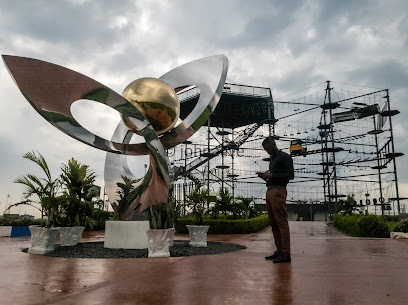
Port Harcourt Zoo
Explore the diverse wildlife and enjoy a family-friendly adventure at Port Harcourt Zoo, a top tourist attraction in Rivers State, Nigeria.
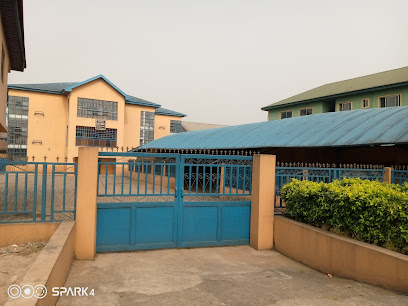
Isaac Boro Park
Discover the serene beauty of Isaac Boro Park, a green oasis in Port Harcourt perfect for relaxation, picnics, and community engagement.
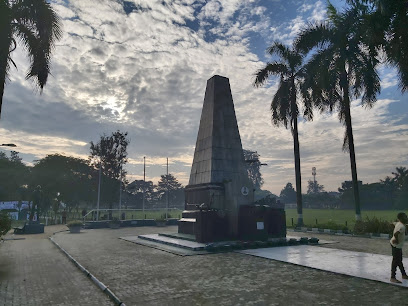
TCK FAMILY PARK RUTALAND
Discover family fun and relaxation at TCK Family Park Rutaland, a picturesque park offering green spaces, playgrounds, and a vibrant community atmosphere.
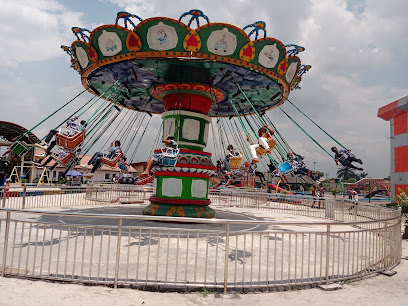
Port Harcourt Golf Club
Discover the serene beauty and challenging courses of Port Harcourt Golf Club, a premier destination for golfers and leisure seekers alike in Nigeria.
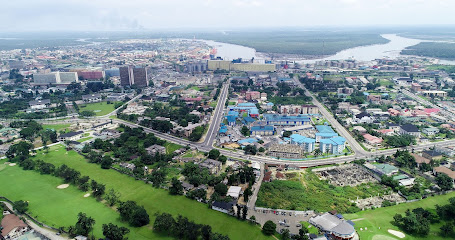
Corpus Christi Catholic Cathedral
Explore the beauty and spirituality of Corpus Christi Catholic Cathedral in Port Harcourt, a stunning architectural masterpiece steeped in history.
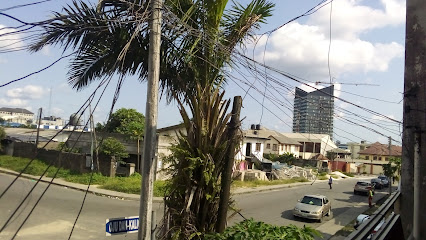
Garden City Amusement Park
Discover endless fun and excitement at Garden City Amusement Park in Port Harcourt, Nigeria - the ultimate destination for family entertainment and adventure.
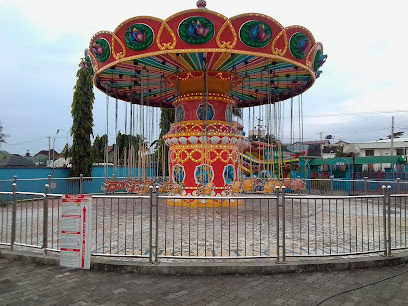
Genesis Centre
Discover the perfect blend of cinematic adventures and tasty fast food at Genesis Centre, Port Harcourt's premier movie destination.
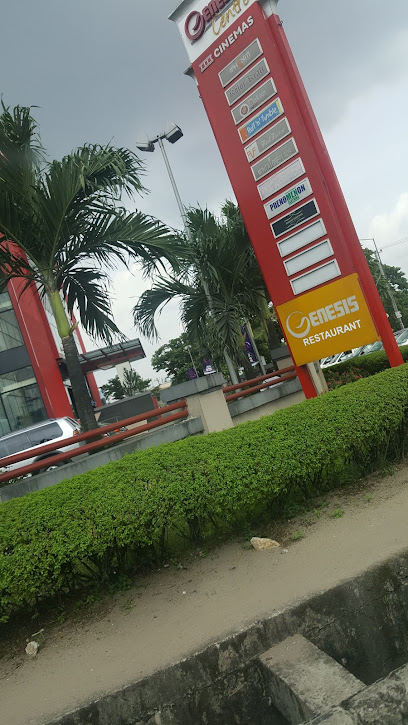
King David Plaza
Experience the vibrant culture of Port Harcourt at King David Plaza, a premier event venue for celebrations, gatherings, and local festivities.
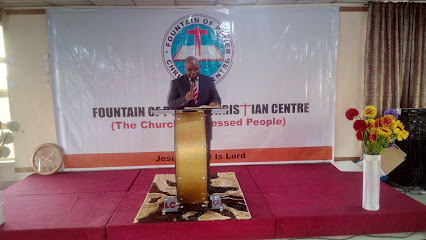
Port Harcourt Railway Station
Experience the vibrant culture and history at Port Harcourt Railway Station, your gateway to exploring the heart of Nigeria.
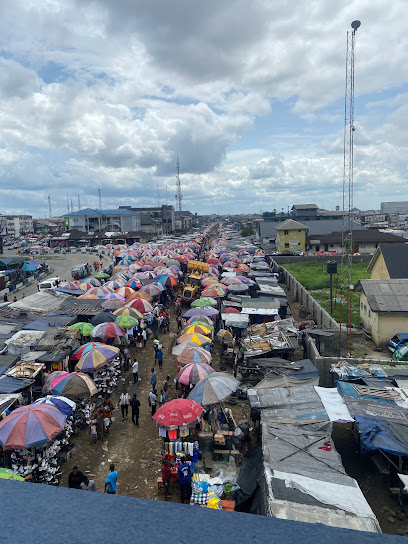
Amusement Park in Port Harcourt RutaLand
Experience thrilling rides and family fun at RutaLand Amusement Park in Port Harcourt, a top destination for unforgettable adventures in Nigeria.
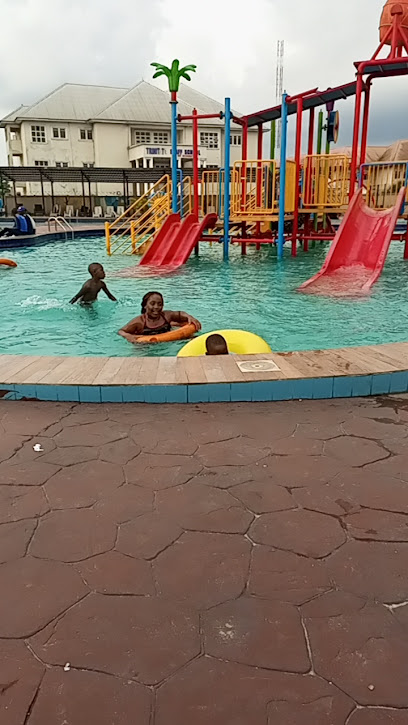
Lemaco Garden
Discover the tranquil beauty of Lemaco Garden in Port Harcourt, a perfect park for relaxation, picnics, and family fun amidst lush greenery.
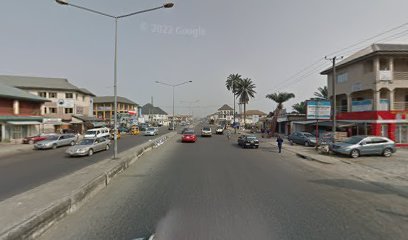
Port Harcourt Nigeria
Explore Port Harcourt, Nigeria: A vibrant city known for its lush landscapes, rich culture, and dynamic atmosphere perfect for every traveler.
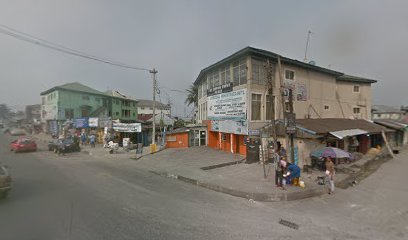
Chief Marcus Lane
Discover the thrill of off-roading at Chief Marcus Lane in Port Harcourt – a scenic adventure destination for every adrenaline junkie.
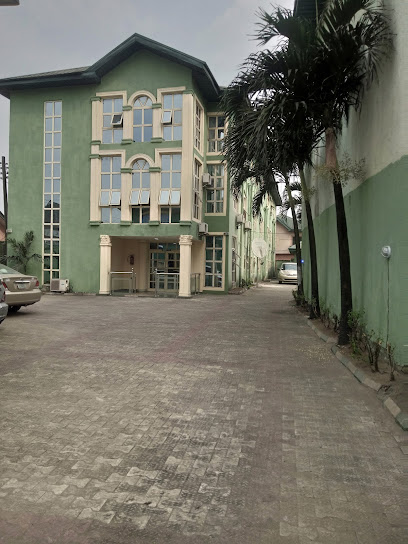
Port Harcourt barracks
Discover the rich military heritage and vibrant culture surrounding the Port Harcourt Barracks in Nigeria's bustling city.
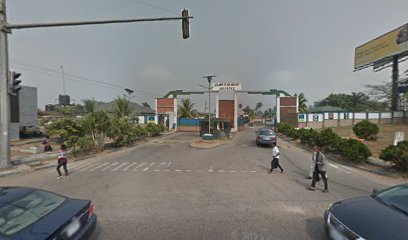
Unmissable attractions to see
Port Harcourt Pleasure Park
Experience the vibrant atmosphere of Port Harcourt Pleasure Park, where adventure meets relaxation in the heart of Nigeria.
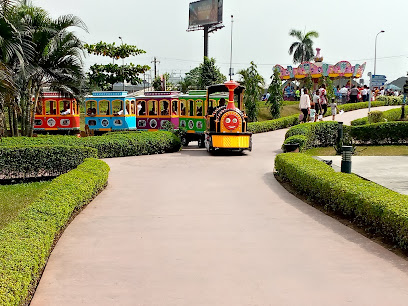
Port Harcourt Zoo
Discover the vibrant wildlife and family-friendly atmosphere of Port Harcourt Zoo, a perfect retreat for nature enthusiasts and families.
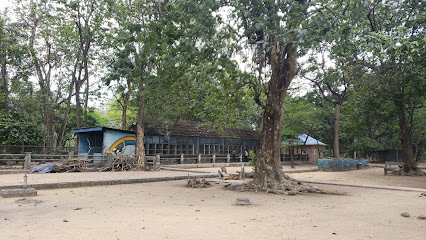
Isaac Boro Park
Explore Isaac Boro Park in Port Harcourt, a lush green escape honoring Nigeria's heroes, perfect for relaxation and cultural discovery.
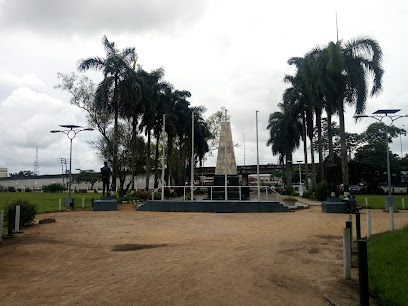
Eleme junction park
Experience the lush tranquility of Eleme Junction Park in Rivers, Nigeria, a perfect blend of nature and community spirit for all visitors.
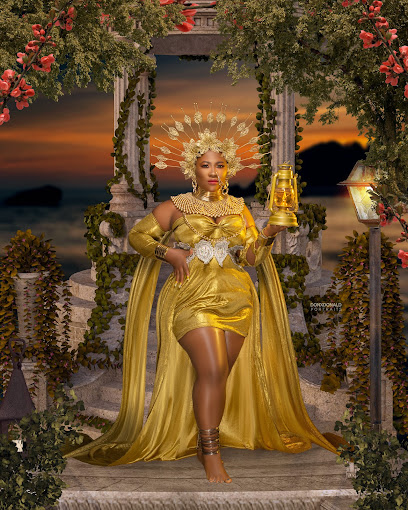
TCK FAMILY PARK RUTALAND
Experience the joy of outdoor fun and relax in nature at TCK Family Park Rutaland, the perfect family-friendly destination in Rivers State.
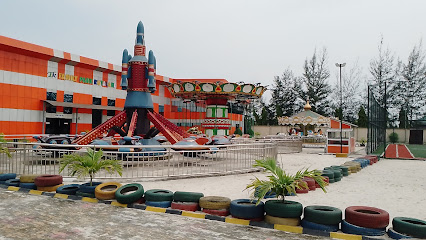
Garden City Amusement Park
Experience the excitement of Garden City Amusement Park, where fun and adventure await for families and thrill-seekers in Port Harcourt.
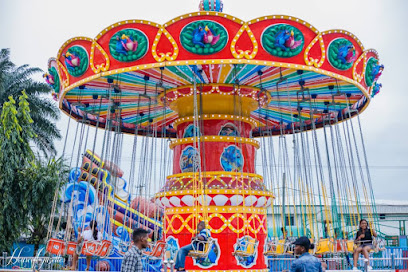
Gidam Parks & Gardens
Discover tranquility at Gidam Parks & Gardens, Port Harcourt's lush haven for relaxation and nature exploration.
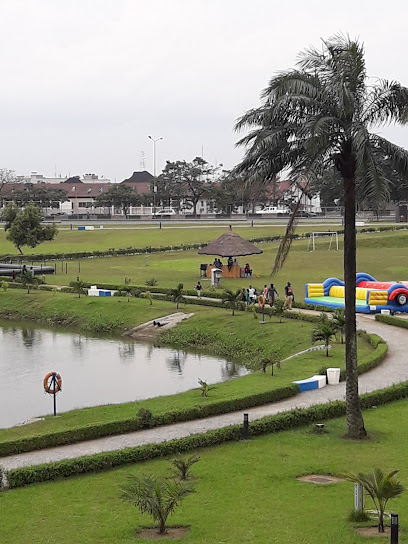
Jubilee Park
Explore Jubilee Park: A serene urban oasis in Port Harcourt, perfect for relaxation, picnics, and enjoying nature's beauty.
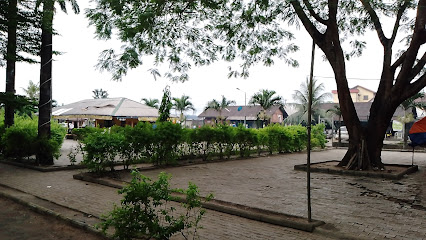
Auxano Gardens
Explore the tranquil beauty of Auxano Gardens in Port Harcourt, a perfect escape into nature with vibrant flora and serene pathways.
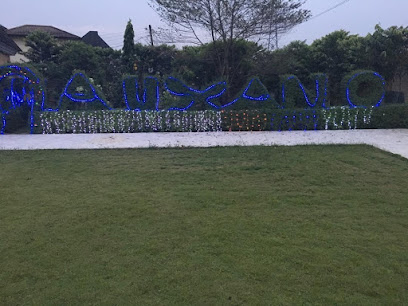
Ph tourist beach
Experience the beauty and vibrancy of Ph Tourist Beach in Port Harcourt, where relaxation meets adventure amidst stunning coastal views.
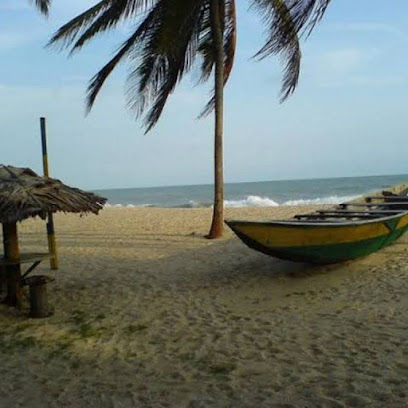
Playfield Park and Event Center
Discover Playfield Park: A vibrant green space in Port Harcourt perfect for picnics, events, and enjoying the beauty of nature.
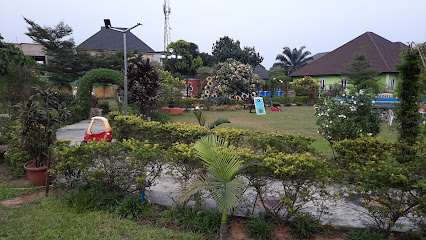
Badume Park
Experience the serene beauty and recreational charm of Badume Park, a perfect getaway in Port Harcourt for relaxation and family fun.

Sand City Beach abuloma
Experience the beauty of Sand City Beach in Abuloma, where golden sands meet gentle waves, creating a tranquil escape for every traveler.
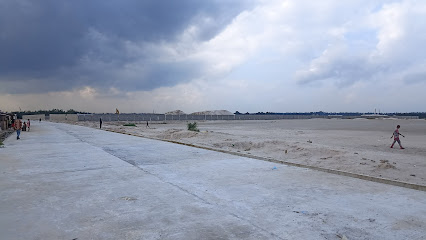
Peace park
Experience the tranquility of Peace Park in Port Harcourt, a green oasis offering relaxation, nature walks, and community events in the heart of the city.
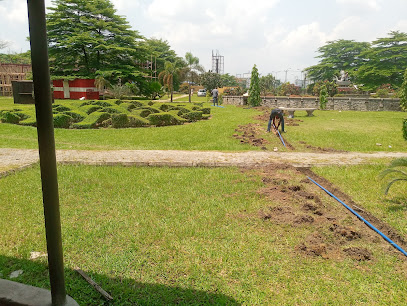
National Museum Portharcourt Nigeria
Discover the treasures of Nigeria's past at the National Museum of Port Harcourt, where culture and history come alive in captivating exhibits.
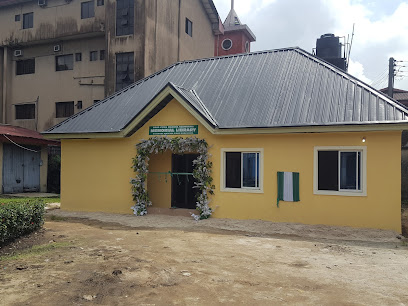
Essential places to dine
Jevinik
Experience the vibrant flavors of Nigeria at Jevinik in Port Harcourt – where every meal tells a story.
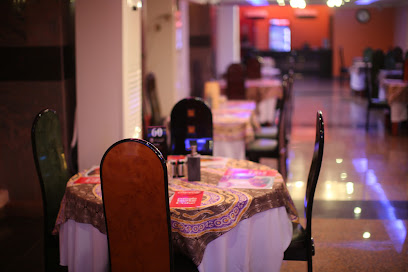
Asia Town Restaurant (Port harcourt)
Experience the best of Asian Fusion cuisine at Asia Town Restaurant in Port Harcourt - where tradition meets modernity in every dish.
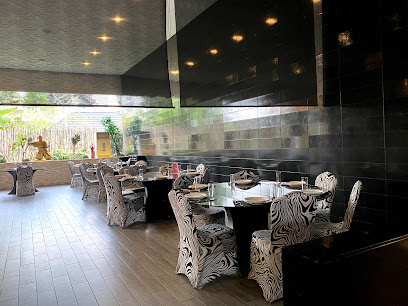
BCON Restaurant and Hotel
Experience exquisite dining at BCON Restaurant and Hotel in Orogbum – where every meal tells a story.
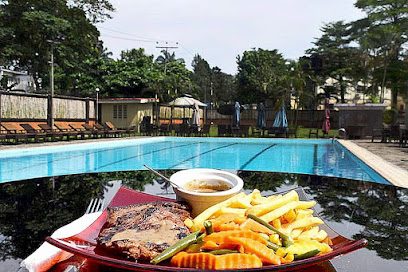
Jevinik Place
Experience authentic Nigerian cuisine at Jevinik Place - where every meal tells a story of rich flavors and cultural heritage.
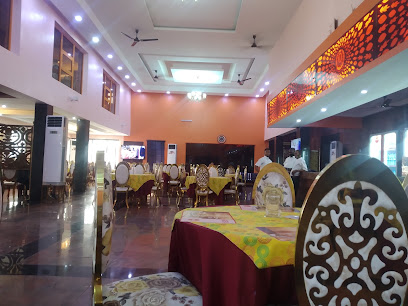
Michael Garden Restaurant
Discover delicious local and international cuisine at Michael Garden Restaurant in Port Harcourt - perfect for all food lovers.
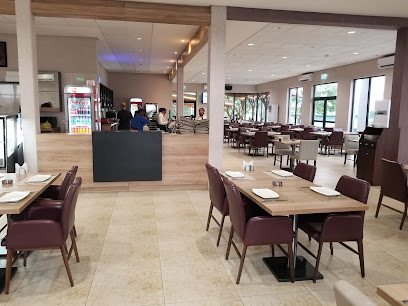
Wood House Cafe
Experience cozy dining at Wood House Cafe in Port Harcourt - your go-to spot for delicious breakfasts and inviting ambiance.
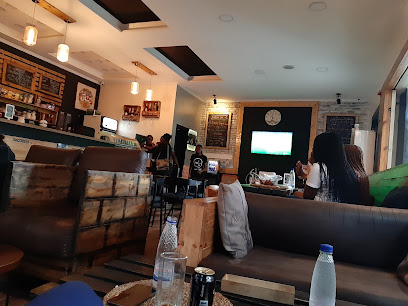
Casablanca Restaurant and Sports Bar
Discover the vibrant dining experience at Casablanca Restaurant and Sports Bar in Port Harcourt - where great food meets thrilling sports action.
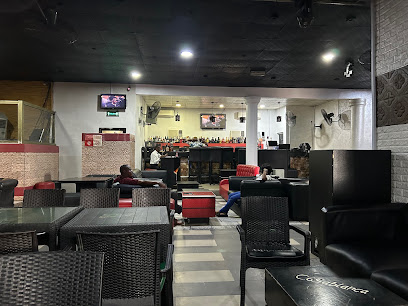
Buns & Batter
Discover Buns & Batter: A must-visit bakery and bistro in Port Harcourt offering delectable pastries and hearty breakfasts.
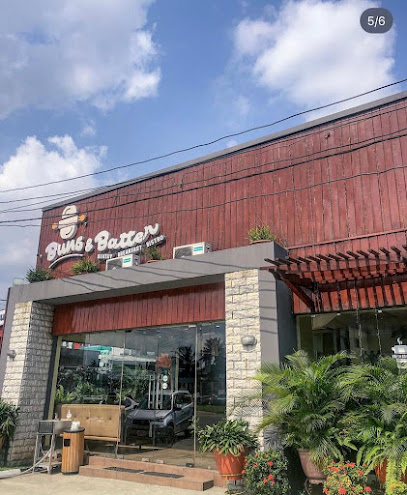
Piano Club Restaurant
Discover the rich flavors of Nigeria at Piano Club Restaurant in Port Harcourt—where great food meets live music in an elegant setting.
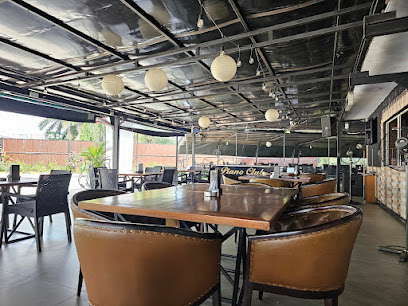
South 66 (Havana)
Experience the vibrant flavors of South 66 in Port Harcourt – where local meets international cuisine in a lively atmosphere.
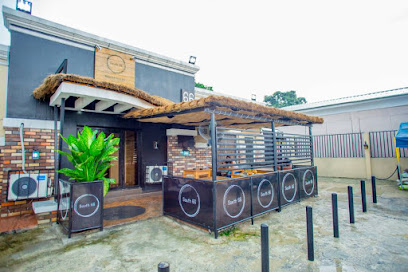
12:11 Restaurant
Experience the rich flavors of Nigeria at 12:11 Restaurant in Port Harcourt - where local cuisine meets international flair.
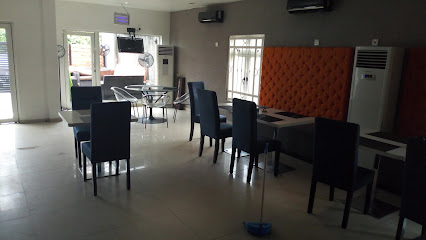
Sky Bar PHC
Discover Sky Bar PHC: Where exquisite grill cuisine meets stunning views in the heart of Port Harcourt.
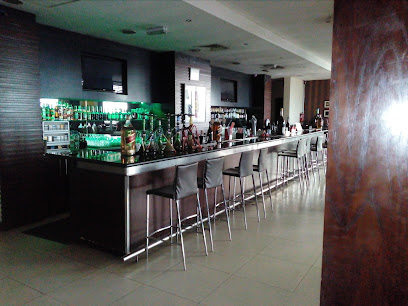
BoomTown Restaurant & Coffee Shop PHC
Discover the culinary delights of BoomTown Restaurant & Coffee Shop in Port Harcourt—where local flavors meet cozy ambiance.
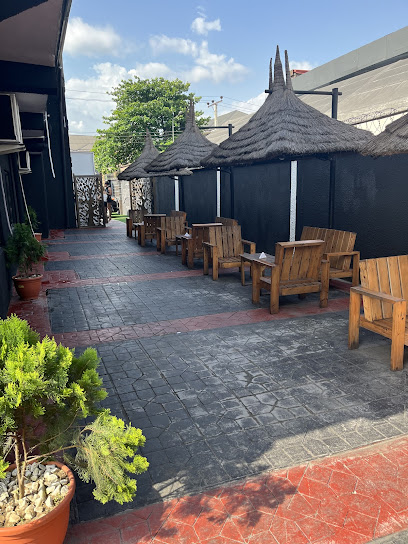
Full Moon Bar & Restaurant
Discover delicious local and international cuisine in a lively atmosphere at Full Moon Bar & Restaurant in Port Harcourt.

CornerStore Cafe
Discover delightful breakfasts and irresistible ice creams at CornerStore Cafe in Port Harcourt - where every bite is an experience.
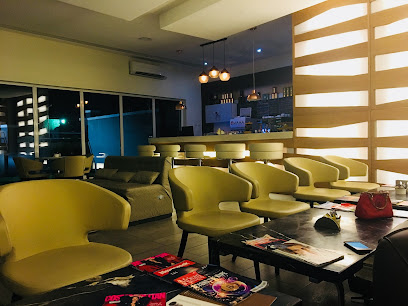
Markets, malls and hidden boutiques
SPAR PH Mall
Explore SPAR PH Mall in Port Harcourt for a delightful shopping experience featuring a variety of products, dining options, and a vibrant atmosphere.
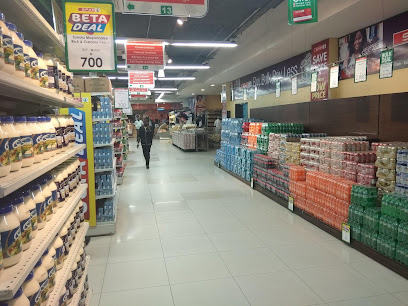
Next Cash And Carry Hypermarket, Port Harcourt
Experience the best of local shopping at Next Cash And Carry Hypermarket in Port Harcourt, where variety meets unbeatable prices!
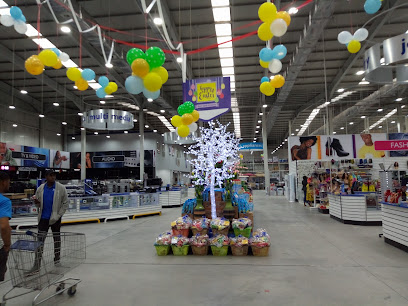
Market Square GRA
Explore the vibrant Market Square GRA in Port Harcourt for a delightful shopping experience filled with fresh groceries, local treats, and delicious ice cream.
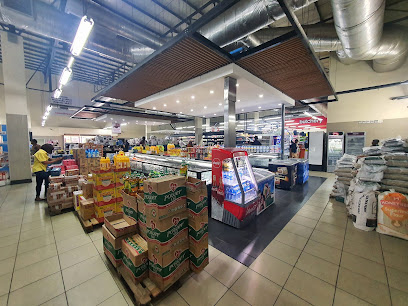
Port harcourt Mall
Explore Port Harcourt Mall: Your ultimate shopping and dining destination in the heart of Rivers State, Nigeria.
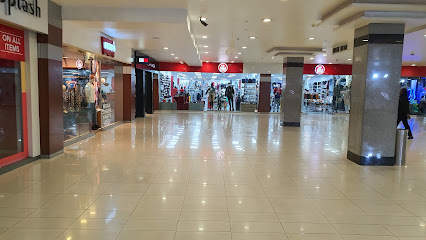
The Vineyard Shopping Center
Discover shopping, dining, and entertainment at The Vineyard Shopping Center in Port Harcourt, a vibrant destination for tourists and locals.
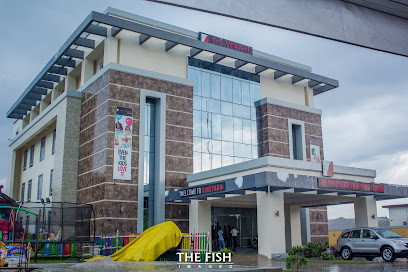
Welcome U Shopping Center
Explore the vibrant Welcome U Shopping Center in Port Harcourt for an unforgettable shopping and dining experience in Nigeria.
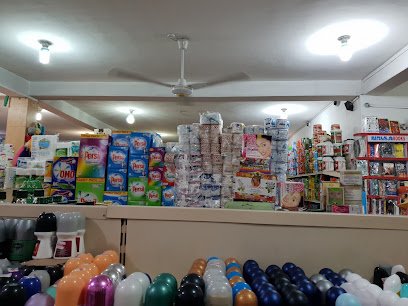
Welcome u shopping center
Welcome U Shopping Center in Port Harcourt: Your one-stop destination for groceries, household items, and vibrant shopping experiences.
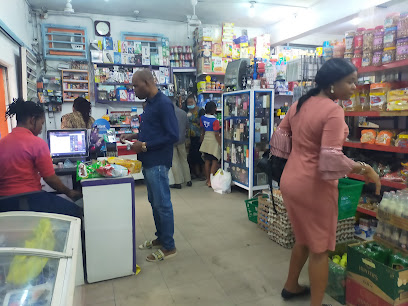
Mcdeez Treatz Gift Company
Uncover exquisite gifts and corporate supplies at Mcdeez Treatz Gift Company in Port Harcourt – your go-to for unique treasures.
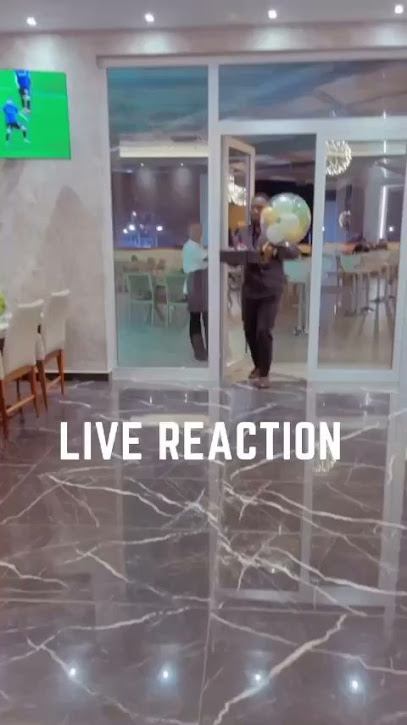
Top Ten Clothing
Discover trendy fashion at Top Ten Clothing in Port Harcourt, where style meets local culture in a vibrant shopping experience.
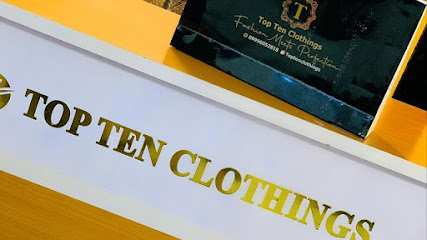
Posh Kiddies & Variety Stores
Explore Posh Kiddies & Variety Stores in Port Harcourt for a delightful shopping experience filled with toys, gifts, and local treasures for all ages.
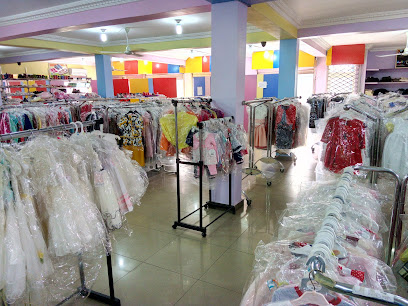
Miskay Boutique
Explore Miskay Boutique in Port Harcourt for unique fashion accessories and clothing, perfect for stylish tourists seeking local flair.
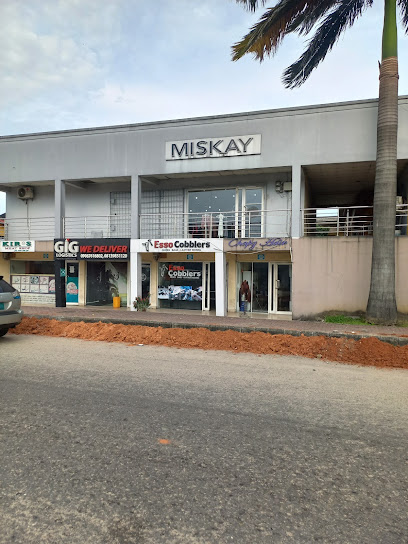
The Order Room
Explore The Order Room in Port Harcourt for unique African goods that celebrate the rich culture and craftsmanship of Nigeria.
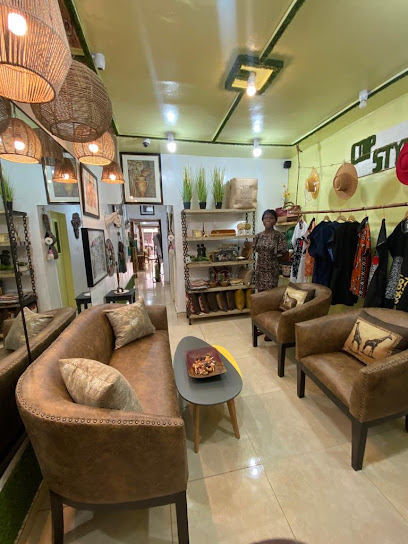
OUCH Portharcourt
Explore OUCH Portharcourt for the latest in men's fashion, blending local charm with contemporary style in the heart of Port Harcourt.
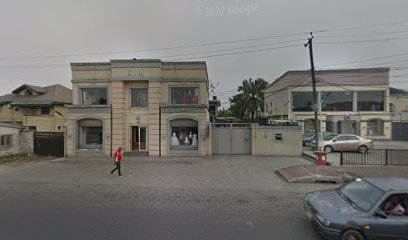
Nesties collection
Explore the unique fashion offerings at Nesties Collection in Port Harcourt, where quality meets style in a vibrant shopping experience.

Chimli Boutique
Discover the latest in women's fashion at Chimli Boutique, a stylish clothing store in Port Harcourt, featuring unique designs and personal service.
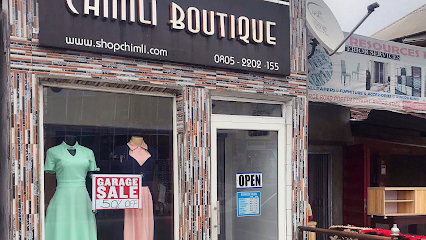
Essential bars & hidden hideouts
Beer Barn
Experience the lively ambiance and extensive drink selection at Beer Barn, Port Harcourt's premier nightlife destination.
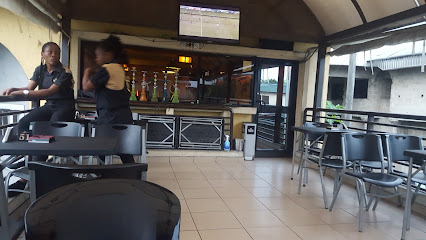
De Office Bar
Experience the vibrant nightlife of Port Harcourt at De Office Bar, where great drinks and lively entertainment come together.
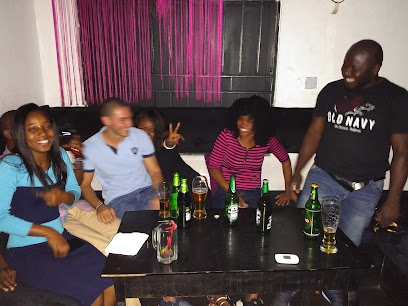
Tapout Bar & Grill
Discover Tapout Bar & Grill, a vibrant spot in Port Harcourt offering delicious food, refreshing drinks, and a lively atmosphere.
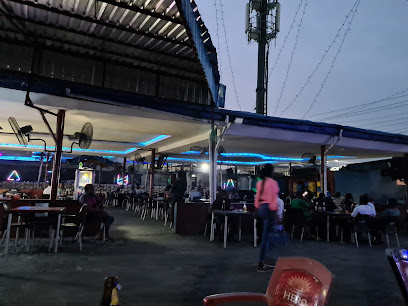
Casablanca Restaurant and Sports Bar
Discover a lively dining experience at Casablanca Restaurant and Sports Bar, where delicious food meets sports entertainment in Port Harcourt.
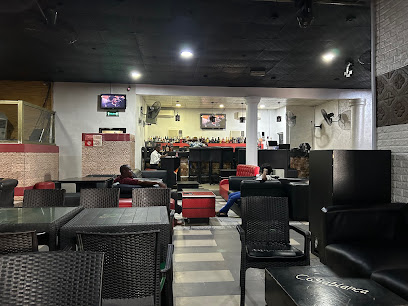
Ediz Wine Bar
Discover the allure of Ediz Wine Bar, where exquisite wines meet culinary artistry in the heart of Port Harcourt, Nigeria.
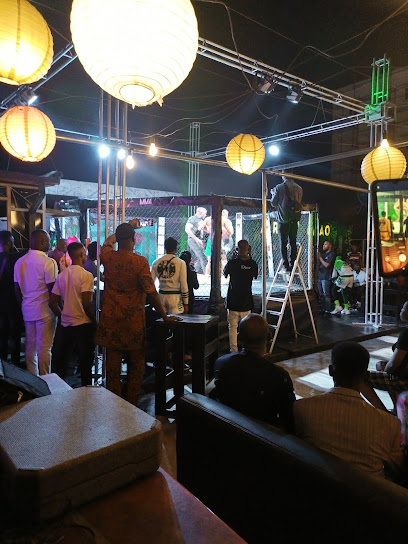
Sky Bar PHC
Discover culinary excellence and breathtaking views at Sky Bar PHC, where Port Harcourt's skyline meets delightful grilled flavors.
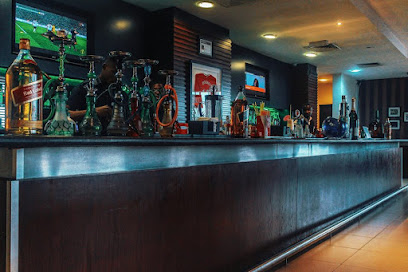
Full Moon Bar & Restaurant
Discover the vibrant nightlife and delicious cuisine at Full Moon Bar & Restaurant, a must-visit spot in Port Harcourt for food and fun.

Cheers Bar
Discover the vibrant nightlife at Cheers Bar, the oldest bar in Port Harcourt, where locals and tourists mingle amidst a lively atmosphere.
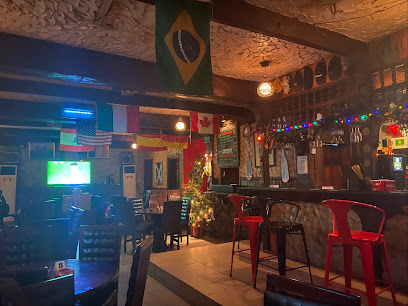
Onel lounge
Experience the vibrant nightlife of Port Harcourt at Onel Lounge, where great drinks and lively entertainment await you.
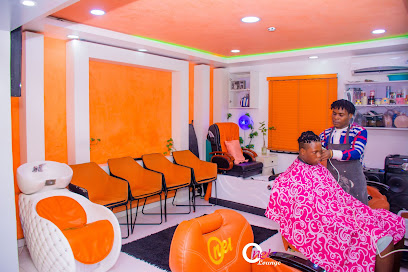
PRISCY'S Bar
Discover the vibrant nightlife at PRISCY'S Bar in Port Harcourt, where excellent drinks and a lively atmosphere await.
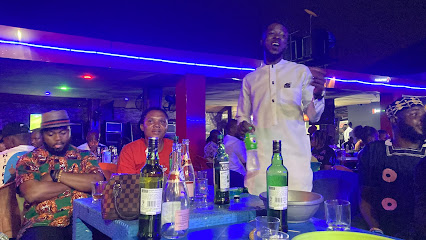
GRAND FINGERS RESTAURANT & BAR
Experience the best of Port Harcourt dining at Grand Fingers Restaurant & Bar, where delicious flavors meet vibrant atmosphere.
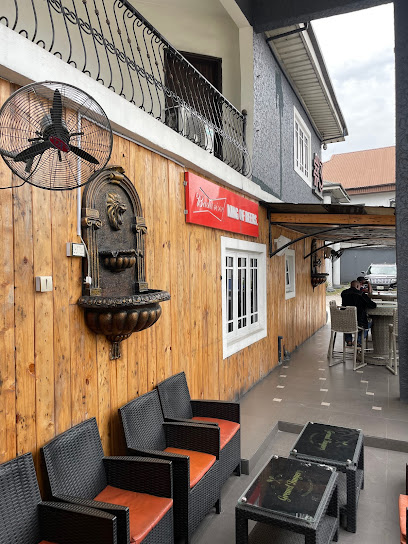
Charlies Bar
Experience the vibrant nightlife of Port Harcourt at Charlies Bar, where great drinks and a friendly atmosphere await.
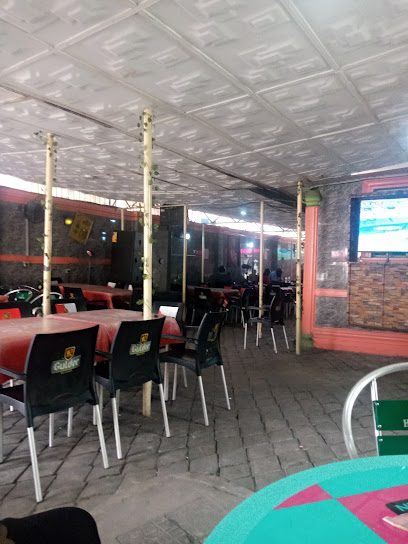
Ultimate Pub
Ultimate Pub: Your go-to spot in Port Harcourt for local brews and vibrant nightlife, perfect for tourists seeking a social atmosphere.
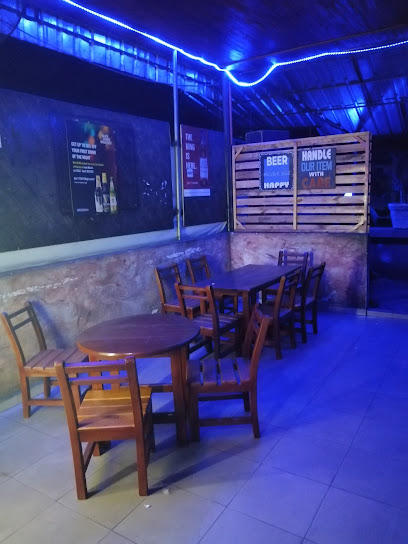
Black box restaurant and pub
Experience the lively nightlife at Black Box Restaurant and Pub, a top bar in Port Harcourt known for its vibrant atmosphere and diverse drink selection.
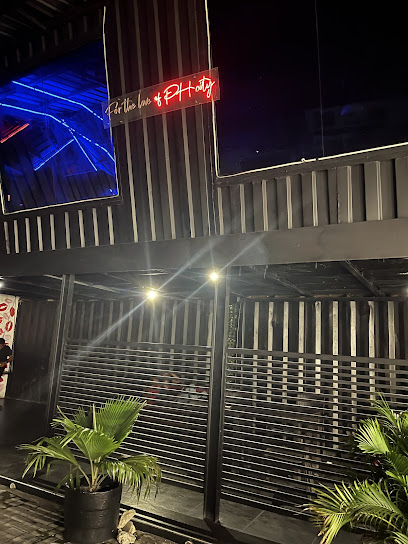
Local Phrases
-
- HelloBawo ni
[bah-woh nee] - GoodbyeKachifo
[kah-chee-foh] - YesEe
[eh] - NoMba
[um-bah] - Please/You're welcomeAbeg
[ah-beg] - Thank youEse
[eh-seh] - Excuse me/SorryBiko
[bee-koh] - How are you?How far?
[how fah] - Fine. And you?I dey. You?
[ee dey. yoo] - Do you speak English?You sabi speak English?
[yooh sah-bee speek ing-glish] - I don't understandI no sabi
[ee no sah-bee]
- HelloBawo ni
-
- I'd like to see the menu, pleaseAbeg show me the menu
[ah-beg show me the menu] - I don't eat meatI no dey chop meat
[ee no day chawp meht] - Cheers!Kachifo!
[kah-chee-foh] - I would like to pay, pleaseAbeg I wan pay
[ah-beg ee wahn pay]
- I'd like to see the menu, pleaseAbeg show me the menu
-
- Help!Biko!
[bee-koh] - Go away!Japa!
[jah-pah] - Call the Police!Call Police!
[call police] - Call a doctor!Call doctor!
[call doctor] - I'm lostI lost
[ee lost] - I'm illI dey sick
[ee day sick]
- Help!Biko!
-
- I'd like to buy...I wan buy...
[ee wahn buy] - I'm just lookingI dey look
[ee day look] - How much is it?How much for am?
[how much for am] - That's too expensiveE too cost
[eh too cost] - Can you lower the price?You fit reduce the price?
[yooh fit reh-duce the price]
- I'd like to buy...I wan buy...
-
- What time is it?Wetin be the time?
[wetin bay the time] - It's one o'clockE don reach one
[eh don reh-ch one] - Half past (10)Half ten don waka
[hahf ten don wah-kah] - MorningMornin
[morn-in] - AfternoonAftanun
[af-tah-noon] - EveningEvenin
[ev-en-in] - YesterdayYestade
[yes-tah-day] - TodayToday
[toh-day] - TomorrowTomoro
[toh-moh-roh] - 1One
[wahn] - 2Two
[too] - 3Three
[tree] - 4Four
[faw] - 5Five
[fahyv] - 6Six
[siks] - 7Seven
[seh-ven] - 8Eight
[eyt] - 9Nine
[nyne] - 10Ten
[tehn]
- What time is it?Wetin be the time?
-
- Where's a/the...?Wia dey...?
[wee-ah day] - What's the address?Wetin be the address?
[wetin bay the address] - Can you show me (on the map)?You fit show me for map?
[yooh fit show me for map] - When's the next (bus)?When bus go waka?
[when bus go wah-kah] - A ticket (to ....)Ticket (go ...)
[ticket go]
- Where's a/the...?Wia dey...?
History of Port Harcourt
-
Port Harcourt was founded in 1912 by the British colonial administration. It was named after Lewis Vernon Harcourt, who was the Secretary of State for the Colonies at the time. The city was established to serve as a port for the export of coal from the Enugu coal fields.
-
The discovery of crude oil in Oloibiri in the 1950s catapulted Port Harcourt into a major economic hub. The construction of oil refineries and the establishment of multinational oil companies in the city spurred rapid industrial growth and urbanization. The Trans-Amadi industrial layout was developed during this period, further contributing to the city's economic expansion.
-
Port Harcourt played a significant role during the Nigerian Civil War (1967-1970). Initially, it was part of the secessionist state of Biafra. However, it was recaptured by Nigerian federal troops in May 1968. The city's strategic location and oil resources made it a focal point during the conflict.
-
Following the end of the Nigerian Civil War, Port Harcourt experienced significant reconstruction and redevelopment. The Nigerian government invested heavily in rebuilding the city's infrastructure, which had been damaged during the conflict. This era also saw the expansion of residential areas and the development of new educational institutions.
-
Port Harcourt is known for its rich cultural diversity, with a mix of indigenous groups such as the Ikwerre, Ijaw, and Ogoni, as well as people from other parts of Nigeria and the world. The city hosts various cultural festivals, including the Port Harcourt Carnival, locally known as 'CARNIRIV,' which showcases music, dance, and traditional attire from different ethnic groups.
-
Port Harcourt is home to several renowned educational institutions, including the University of Port Harcourt, established in 1975. The city is a center for learning and research, attracting students and scholars from across Nigeria and beyond. The presence of these institutions has contributed significantly to the intellectual and cultural landscape of the city.
-
Today, Port Harcourt is a bustling metropolis and a major economic center in Nigeria. It continues to play a vital role in the country's oil and gas industry. The city's skyline is dotted with modern buildings, and it boasts a vibrant nightlife, shopping centers, and recreational facilities. Despite challenges such as pollution and traffic congestion, Port Harcourt remains a dynamic and influential city in Nigeria.
Port Harcourt Essentials
-
Port Harcourt is served by the Port Harcourt International Airport (PHC), located approximately 30 kilometers from the city center. Direct flights connect Port Harcourt to major cities such as Lagos, Abuja, and Accra. Taxis and car rentals are available at the airport for transportation to the city. Additionally, Port Harcourt is accessible by road and rail from other Nigerian cities, although road conditions may vary.
-
Within Port Harcourt, various transportation options are available, including taxis, buses, and motorcycle taxis (okadas). Taxis and ride-hailing services like Bolt and Uber are commonly used by tourists for convenience and safety. Buses and okadas are more affordable but may be less comfortable. For longer distances within the state, consider hiring a private car.
-
The official currency in Nigeria is the Nigerian Naira (NGN). While credit and debit cards are accepted in many hotels, restaurants, and larger shops, it is advisable to carry cash, especially for smaller establishments and markets. ATMs are widely available in Port Harcourt, but it's wise to have some cash on hand for emergencies and places that do not accept cards.
-
Port Harcourt has areas with varying levels of safety. It is advisable to avoid neighborhoods such as Diobu, Mile 1, and Mile 3, which are known for higher crime rates targeting tourists. Stick to well-known and secure areas like GRA (Government Reserved Area) Phase 2 and 3. Always stay vigilant, avoid walking alone at night, and keep an eye on your belongings in crowded places.
-
In case of emergency, dial 112 for immediate assistance. Port Harcourt has several hospitals and clinics offering medical services, including the University of Port Harcourt Teaching Hospital and Braithwaite Memorial Specialist Hospital. It is recommended to have travel insurance that covers medical emergencies. For minor health issues, numerous pharmacies are available throughout the city.
-
Fashion: Do wear lightweight and breathable clothing suitable for the tropical climate. Avoid overly revealing clothing. Religion: Do respect religious customs, especially in mosques and churches. Dress modestly and remove shoes when required. Public Transport: Do negotiate taxi fares before starting your journey. Don't use unmarked taxis. Greetings: Do greet people with a handshake and a warm smile. Address elders respectfully. Eating & Drinking: Do try local dishes such as banga soup and boli. Don't drink tap water; always opt for bottled water.
-
To experience Port Harcourt like a local, visit the Mile One Market for a vibrant shopping experience, where you can buy local crafts and fresh produce. Engage with the locals, who are generally friendly and willing to share insights about their culture. Don't miss the opportunity to enjoy a boat ride on the Bonny River or visit the Port Harcourt Tourist Beach. For a taste of local nightlife, explore the bars and restaurants in the GRA area.
Trending Landmark in Port Harcourt
-
Port Harcourt Pleasure Park
-
Port Harcourt Zoo
-
Isaac Boro Park
-
TCK FAMILY PARK RUTALAND
-
Port Harcourt Golf Club
-
Corpus Christi Catholic Cathedral
-
Garden City Amusement Park
-
Genesis Centre
-
King David Plaza
-
Port Harcourt Railway Station
-
Amusement Park in Port Harcourt RutaLand
-
Lemaco Garden
-
Port Harcourt Nigeria
-
Chief Marcus Lane
-
Port Harcourt barracks
Nearby Cities to Port Harcourt
-
Things To Do in Owerri
-
Things To Do in Uyo
-
Things To Do in Onitsha
-
Things To Do in Calabar
-
Things To Do in Asaba
-
Things To Do in Warri
-
Things To Do in Enugu
-
Things To Do in Benin City
-
Things To Do in Luba
-
Things To Do in Malabo
-
Things To Do in Limbe
-
Things To Do in Buea
-
Things To Do in Tiko
-
Things To Do in Mamfe
-
Things To Do in Douala












